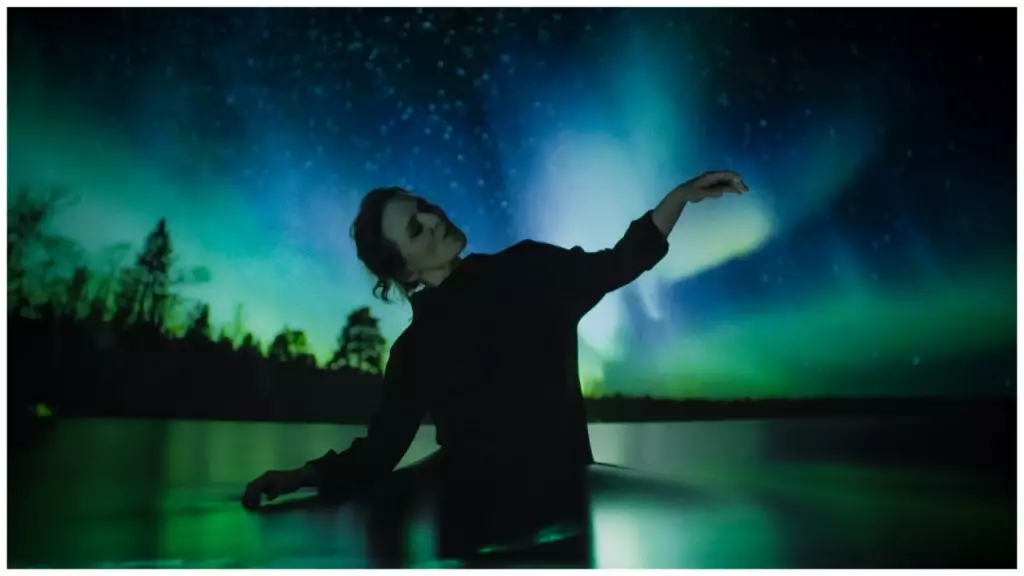In an innovative blend of the biographical and experimental realms, “Miss Geraldine Flower” emerges as an enthralling tribute to a woman whose life was as layered and complex as the letters she left behind. This film, directed by the talented duo Iain Forsyth and Jane Pollard, known for their prior work on Nick Cave’s “20,000 Days on Earth,” offers a unique perspective that transcends conventional storytelling to delve into the intimate and often hidden facets of its subject. The film’s avant-garde approach raises significant questions about identity, memory, and the enduring impact of art, inviting the audience to engage in a poetic reflection rather than merely observe a narrative.
At the heart of the film lies a trove of correspondence—letters, photographs, and even telexes—left behind by Miss Flower. These remnants of her past serve not only as storytelling devices but as symbolic portals into a world that feels both extraordinarily personal and remarkably universal. The choice to center the film on these intimate artifacts underscores the importance of letter-writing, which as the narrator (voiced by Sophie Ellis-Bextor) eloquently articulates, serves as a far more profound form of communication than modern texts or emails. The longing for connection, the preservation of personal histories, and the ability to elicit emotions from readers are pivotal themes underscored in this unconventional biopic.
Emiliana Torrini, the Icelandic singer whose lyrical expressions resonate throughout the film, plays a critical role in channeling Geraldine’s spirit. Her music weaves through the narrative, creating a haunting soundscape that allows us to feel, rather than just observe, the complexities of Geraldine’s existence. The lyrics, though sometimes grounded in stark realities, echo the dreamlike quality of Geraldine’s letters, turning memories into musical poetry that enriches the cinematic experience.
Caroline Katz, who embodies Geraldine, introduces an element of metatextuality that intrigues viewers. Katz’s portrayal invites us into a surreal café setting where she and Torrini engage in dialogues that blur the line between fiction and reality. This pacing cultivates an intimate viewing experience, allowing the audience to connect deeply with Geraldine’s contemplations. One can’t help but notice the skillful choreography by Kate Coyne which shifts the film into an artful realm, relegating traditional narrative structures to the background while foregrounding an exploration of emotional landscapes.
The film’s clever use of parody format, reminiscent of a ‘70s educational broadcast, adds an intriguing layer of irony. This stylistic choice hints at the film’s broader commentary on the nostalgic yearning for bygone experiences and the simplicities of past forms of communication. Simultaneously, it allows for a playful critique of how the media constructs the narratives of individuals’ lives—be they celebrated icons or everyday heroines.
What sets “Miss Geraldine Flower” apart from other biopics is its insistence on maintaining an air of mystery surrounding its subject. The suggestions of spies, coded messages, and hidden meanings in Geraldine’s letters provoke curiosity that lingers long after the credits roll. The film invites viewers to ponder whether these ephemeral connections were simply personal or encapsulated broader, more enigmatic intentions. This ambiguity enables the narrative to resonate with anyone who has grappled with their identities in a world that often favors the obvious over the obscure.
Furthermore, the film’s exploration of the art of letter-writing speaks to a contemporary audience interested in reexamining the ways we connect with one another. In an era dominated by rapid communication technologies, Geraldine’s letters stand as a poignant reminder of the richness inherent in slow, thoughtful correspondence. As Torrini reflects on the power of letters to open up worlds long concealed, the film suggests that understanding one’s self can often be found in the introspection of the written word.
“Miss Geraldine Flower” stands poised to carve out a niche for itself among cult audiences drawn to films that prioritize emotional authenticity and experimental storytelling. By drawing on the weight of personal narrative and indefinable mystery, the film invites viewers into an intimate conversation with art, memory, and the inescapable enigma of what it means to truly know someone. In essence, it reflects a broader cultural moment: a yearning to uncover the shadows of the past as we navigate our complex identities today. Just as Geraldine’s letters beckon from the past, this film challenges us to reflect on our connections and the stories they hold.


Leave a Reply